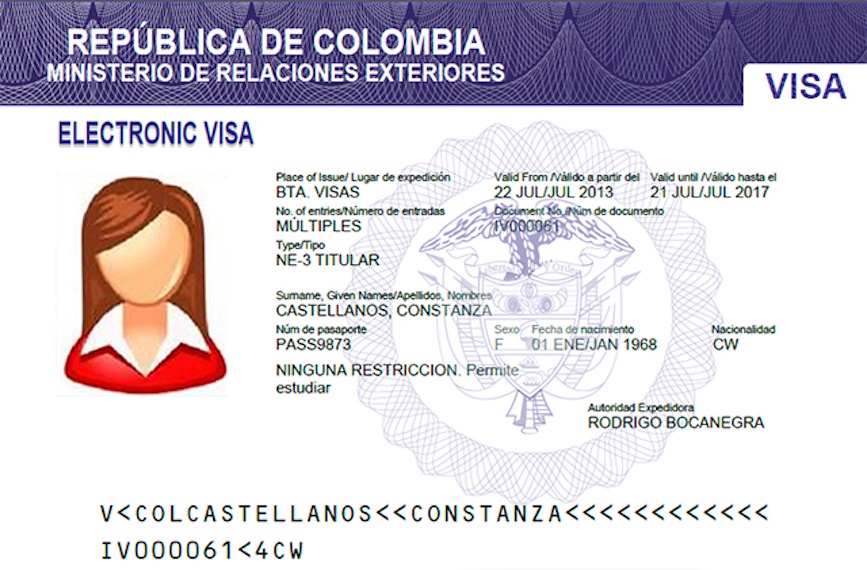
This could be a more common sight for many people if the proposed police reforms are passed. Photo: Policía Nacional de los Colombianos
As Mike Mackenna explains, Colombian police could soon have the power to enter your home or detain you for being intoxicated if a police reform bill before Congress is passed
It’s a story that would sound painfully familiar to anyone who’s followed recent news in the US – the government uses drug laws and threats to public safety to justify giving more power to the police, then the police find appalling ways to abuse that power. Even though that lesson seems plain as day to those who have seen what some US police forces have done with their carte blanche to use force as they see fit, the Colombian government is on track to approve a police code reform which would give police here a similarly wide remit to do what they feel is necessary to maintain order.
The Police Code Reform, which recently passed to a second debate in the Senate, is a project years in the making. There have been no reforms to the current Code since 1970, and it features anachronistic sanctions such as fines for not visibly flying the Colombian flag during national holidays. No one is arguing that a reform is not necessary, and the one currently being debated does have positive features, such as a system for keeping track of unpaid fines, the outlawing of weapons like stun guns, and protection for street animals.
However, many are arguing that parts of the proposed reform would infringe on fundamental rights. These centre on three features of the reform: the need to ask permission from your mayor to stage a protest, the right of the police to enter a residence without a warrant if they feel entry is necessary to maintain public order, and the right of the police to detain someone who is intoxicated, even if that person has not committed a crime.
A study of citizens’ perception of the police in Bogota, Cali and Medellin carried out by Dejusticia, a Bogota-based human rights organisation, documents a high level of dissatisfaction and an equally high level of police abuse and adds weight to concerns that the police would be likely to abuse these enhanced powers.
Freedom to protest and freedom of speech
Article 25 of the proposed reform, which is ironically titled “Freedom of Assembly”, requires anyone planning a protest to inform their mayor with five days’ notice, and then requires the mayor to respond within three days. There must be at least three people planning the protest, or at least one organisation, and those responsible for the protest must inform the mayor of the date, time and place of the protest. Article 116 of the reform states that those who hold protests without permission will be fined.
It hardly seems necessary to explain why asking for permission to protest is an infringement on free speech, but if an explanation is necessary, Senator Alexander López of the Polo Democratico party made the obvious point to El Espectador that true freedom of speech does not depend on a city mayor’s permission. Considering the national government’s at-times-clumsy and at-times-violently repressive response to the 2013 national agrarian strike, and its unresponsiveness to the 2015 teachers’ strike, it does not seem wise to trust local governments to protect free speech.
Your home is your castle
Article 207 of the reform gives the police ample discretion to enter people’s homes without warrants if they think that someone inside might be intoxicated, or if they feel it’s necessary to enter to maintain order. Giving the US police similar authority has resulted in numerous horror stories, and has led some to charge that the police unfairly target minorities when carrying out warrantless searches.
The possibility of a racist application of this law should worry Colombians, since the aforementioned study by Dejusticia found that the Colombian police already disproportionately target Afro-Colombians and the indigenous when “randomly” approaching citizens – with minority groups being stopped about 30 percent more often.
Furthermore, since black and indigenous Colombians were 18 percent more likely to be approached at their places of employment than other groups, it is not much of a stretch to suggest that if the police are more likely to approach minorities while they’re working, then they will also be more likely to do so in their homes. Despite what some of the police interviewed by Dejusticia claim, there is no evidence that either of these groups is more likely to commit crimes than the rest of the population.
Expanding powers of detention
Article 78 of the reform gives the police the right to detain intoxicated people for up to 12 hours “for their own protection”. The Dejusticia study gives us reason to be wary of the effects this law might have on all Colombians, not just minority groups, since the study shows that all races in Colombia are about equally likely to be detained.
It should be noted that those surveyed for the study who had been detained had not been arrested, but instead held temporarily, a practice which is potentially unconstitutional. The Constitutional Court gave Congress the task of defining under what conditions temporary detention was allowed, a task which they were supposed to have finished by 2008. To date they have not defined those terms.
A convincing majority of those who were detained reported poor treatment by the police, with 70 percent reporting being mistreated, either verbally or physically. As the report concedes, perception might not reflect reality, since being held by the police is an unpleasant, stressful experience that may lead people to exaggerate or misrepresent what happened. However, as the report points out, the perception itself is a serious problem that must be dealt with, especially now that this reform is likely to make detainment a more common experience.
It should be clear that these three features of the reform are highly unlikely to increase trust in the police, or to make people feel safer. A lack of trust in the police is already a serious problem in Colombia: of the victims of crime surveyed by Dejusticia, a shocking 50 percent said they did not report the crime, with 40 percent saying they didn’t do so because they don’t trust the police – the number one reason for not reporting.
In fact, less than 20 percent said they have confidence in the ability of the police to administer justice. No laws, no matter how well designed, will be very effective when people have little-to-no faith in those who are enforcing them.
The Opinion section is a space for your views and opinions. We’ve featured articles on all aspects of life in Colombia – from the free trade agreement to bull fighting.Whether you agree or disagree with anything we’ve written, we’d love to hear your thoughts – leave a comment below, tweet us at @bogotapost, post on our Facebook page /BogotaPost or email us at [email protected].The articles in ‘Opinion’ are commentary, not news reporting. The views expressed in this section are those of the author and do not necessarily reflect those of The Bogota Post or its publishers. The publishers take no responsibility for the accuracy of any information published in this section. |





